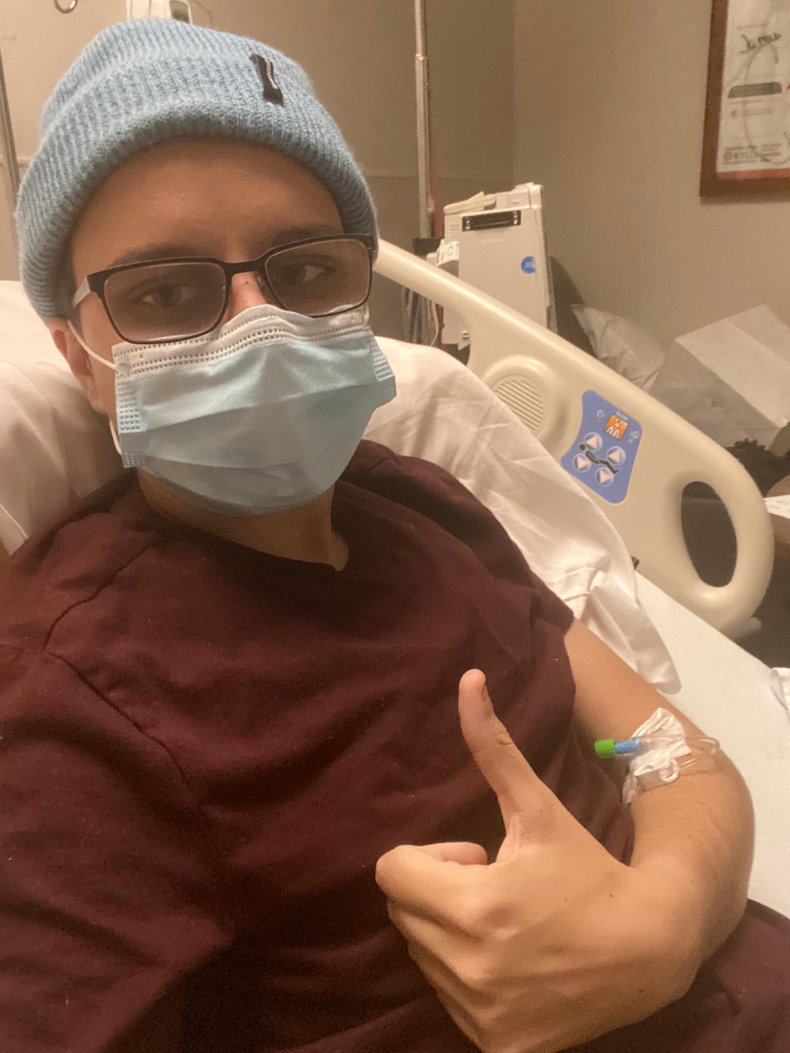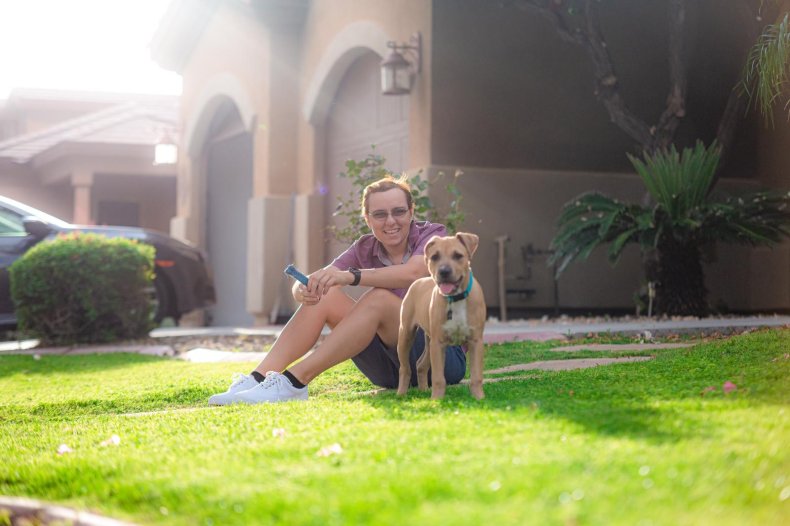My family lives in San Francisco, so in late November I had been isolating at home in Tempe, Arizona, where I live, as I was planning to travel back to California to spend Thanksgiving with them. My parents are a little older so I didn't want to put anyone at risk. About half way through the two week isolation period, one of my friends lost their housing and asked if they could stay with me.
Then, on Saturday 21 November, it came to light that my friend had attended a wedding prior to coming to stay with me, and someone there had tested positive for COVID-19.
I was asymptomatic at that point, but my friend and I both got tested. I recall explaining to my dad that I didn't feel unwell, but that I didn't want to risk coming home to San Francisco and making him or my family sick. My flight to go home was booked for November 22, so unfortunately I had to cancel it immediately.
My friend and I both found out on Wednesday, November 25 that we had tested positive. Until then, I had still had no symptoms, but that night I began to experience a headache. It got progressively worse over the next couple of days and by the morning of Saturday 28 I had also started to lose sensation on my left side. I felt extremely weak and couldn't balance on my left leg or even grip my dog's leash in my left hand.
I was experiencing a lot of dizziness; no spinning but a sensation of rocking back and forth, like I was on a boat. My vision started spotting on the left side, too. It seemed like I was looking at the world through swiss cheese; there were circles blocking my left eye that meant my vision in my left eye was only at around 40 percent.
Prior to contracting COVID, the only health condition I have had is exercise-induced asthma. But it's not like I walk down the street and get out of breath; I am someone who could play 80 minutes of a rugby match with no problems.
I've only been going to practice since the pandemic began, but last year, I would play up to three full games a day; that's non-stop, full-contact exercise. By the end of the day I would still have the energy to go out to dinner and onto a bar with friends. That Saturday before I went to the hospital, I could not walk my dog 20 yards down the hallway without getting tired.
But, I really dislike going to the hospital, so that Saturday morning I got up and started moving around as normal. Soon after, I dropped a plate in a sink while doing the dishes. At that point I realized that if I couldn't even hold a plate in my left hand, something must really be wrong. I ended up calling my dad and then my doctor and the doctor told me to go to the emergency room (ER) right away.

When I arrived at the ER, I was almost immediately given X-rays, an IV and CT scans were taken of my brain. The doctors weren't sure what was happening but they admitted me to hospital and later, a second neurologist explained that they were going to carry out an MRI because they suspected I had had a transient ischaemic attack (TIA), which is also known as a mini stroke.
I had four different MRIs in the end, and because my family were all in California no-one could come and visit me, so of course I was a little scared. But, I was so weak physically I didn't really have the energy to engage with those thoughts.
Luckily, my MRIs came back OK, which the doctors explained indicated I had experienced a TIA —since full ischemic strokes normally show up on an MRI, but TIAs typically don't. The doctors explained that my TIA had happened as a result of having contracted COVID-19, and also told me that they have seen complications from COVID-19 patients that they have never seen before with other virus'.
I am back at home now and I feel better, but I'm still experiencing weakness in my left side; it's still difficult to walk and retain balance. I was told that one in five people who have suffered TIAs are at risk of going on to suffer a full ischemic stroke within a year, and I definitely don't feel good yet. My vision is still only about 90 percent and I don't have an appetite. Up until the day I came home from the hospital I hadn't eaten a full meal in around four days.
Typically TIAs resolve on their own, which is why nothing shows up on an MRI. But, the symptoms are also supposed to resolve within around 24 hours, and around 72 hours later I was still experiencing problems. So now the neurologists have suggested sending me to the neurology department, physical therapy and occupational therapy for further treatment and all sorts of tests because they don't understand why I don't feel better. I still get winded from just walking.

I don't expect to play rugby again. There are several reasons; I have experienced a few concussions in the past couple of years—that's partly why I was practicing during the pandemic but not playing. Although the neurologist doesn't think there is any link between my concussions and the TIA, doctors have now told me that between this mini stroke and my previous concussions, any head injury now could be fatal for me. It's frustrating and hard to comprehend that I won't play again, but it's just not worth the risk.
I've now tested negative for COVID so I'm no longer contagious, I'm just still experiencing symptoms. So I'm still isolating, apart from walking my dog, for the next few weeks. Even after that I'm still not going to go out partying, I'm going to set an example and wear a mask.
What's shocking to me is that although I live in Phoenix, which is a college town, I'm still seeing lots of people walking around without wearing masks. Arizona's COVID-19 cases are increasing exponentially—on December 1, we had more than 10,000 new cases in one day. We all need to wear a mask.
I'd like younger people to realize that COVID-19 doesn't discriminate, you may be less at risk from certain complications but you have no way to predict how your body is going to respond. If someone had asked me a few weeks ago if I thought I would get this sick from COVID, I probably would have laughed in their face.
I had no idea.
Riley Behrens is studying at Harvard University, as well as being an athlete and mental health advocate. He lives in Phoenix, Arizona with his dog. You can follow him on Twitter at @RileyBehrens.
All views expressed in this piece are the author's own.
As told to Jenny Haward.
"had" - Google News
December 05, 2020 at 04:00PM
https://ift.tt/2IeVlKI
'I'm 23, I Had a Mini Stroke Days After Contracting COVID' - Newsweek
"had" - Google News
https://ift.tt/2KUBsq7
https://ift.tt/3c5pd6c
Bagikan Berita Ini














0 Response to "'I'm 23, I Had a Mini Stroke Days After Contracting COVID' - Newsweek"
Post a Comment